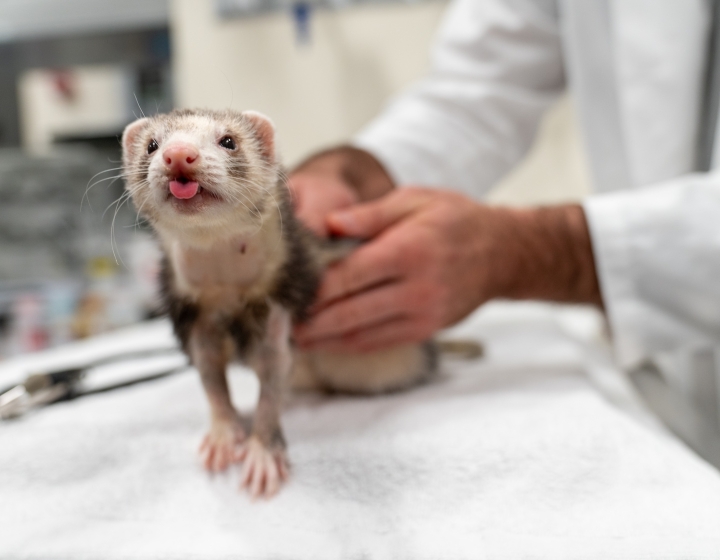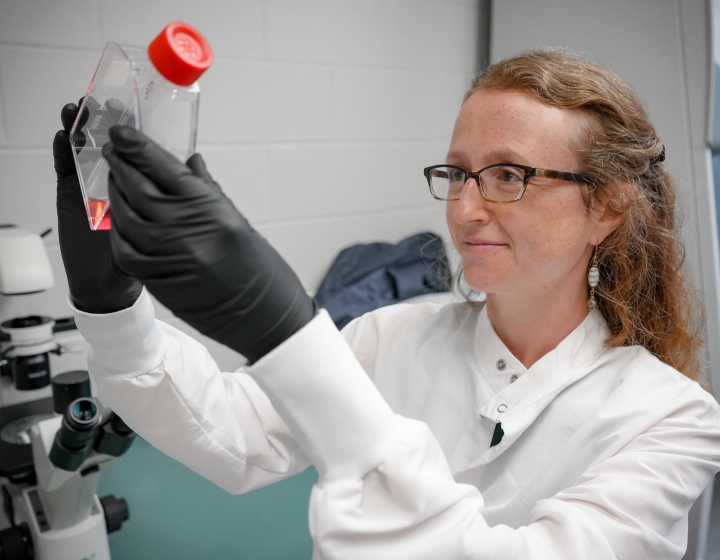Cornell Veterinary Educators Academy launches inaugural conference
After its establishment in June, the Cornell Veterinary Educators Academy wasted no time in launching programming for the veterinary community with an inaugural conference, “Professions, Professionals and Professional Identity,” held virtually Aug. 10 and 11.
“The conference was a big success,” says Katherine Edmondson, M.S. ’85, Ph.D. ’89, assistant dean for outreach in health professions education and director of the Cornell Veterinary Educators Academy. Recognizing that the process of becoming a professional is unique to each veterinary student, attendees discussed barriers and enabling factors to this process, as well as effective instructional approaches. “The program explored the challenges minoritized students face as they develop their professional identities, as well as the roles perfectionism and tolerance for ambiguity play in students’ professional development,” Edmondson says. “The broader theme of negotiating multiple identities created a logical thread that allowed each session to build upon the one that preceded it.”
The conference was free to Cornell students, faculty, staff and alumni. Of the 40 registrants, 25% were from Cornell, and the rest represented a number of U.S. and international institutions, as well as some from industry. The featured speakers included Dr. Jonathan Wood, assistant clinical professor in the Section of Neurology and Neurosurgery at the Cornell University Hospital for Animals, while three others represented the field of human medicine.
“There are a great number of dedicated teachers and mentors involved in veterinary education, many of whom have had little to no formal training in areas such as teaching, assessment, curriculum development or the underlying principles that lead to effective student learning,” Edmondson says. The Cornell Veterinary Educators Academy provides a community of practice, she says, where individuals can develop a sophisticated and shared framework for thinking about education, build networks with likeminded colleagues, share ideas and learn from each other.
The Cornell Veterinary Educators Academy hosts two annual conferences, one held in Ithaca in the summer and one in Florida in winter. The academy’s next conference is planned for Jan. 13-15, 2023 in Sarasota, Florida, and will focus on teaching and learning in the clinical environment. “The topics or themes of the conferences will change, and reflect contemporary issues in health professions education,” Edmondson says. In addition to conferences, the Cornell Veterinary Educators Academy comprises a Fellows Program, and a series of open workshops and seminars.
“There are a few other programs or conferences focused on veterinary education, but none of them use this model,” she adds.
Programming from the Cornell Veterinary Educators Academy provides an opportunity for faculty to develop skills and scholarship related to teaching that will help them advance in their careers, Edmondson notes, since traditionally recognition and rewards for teaching may not carry as much weight in the tenure process as other forms of scholarship and clinical service.
“It moves beyond a reliance on student evaluations to recognize the intellectual and scholarly work inherent in excellent teaching, and the Fellows Program offers additional certification,” Edmondson says. “Cornell has a legacy of being a leader in veterinary education. This initiative will help us continue to lead the way as we look to the future.”
More information about the Cornell Veterinary Educators Academy and its programming can be found online.
Written by Melanie Greaver Cordova




